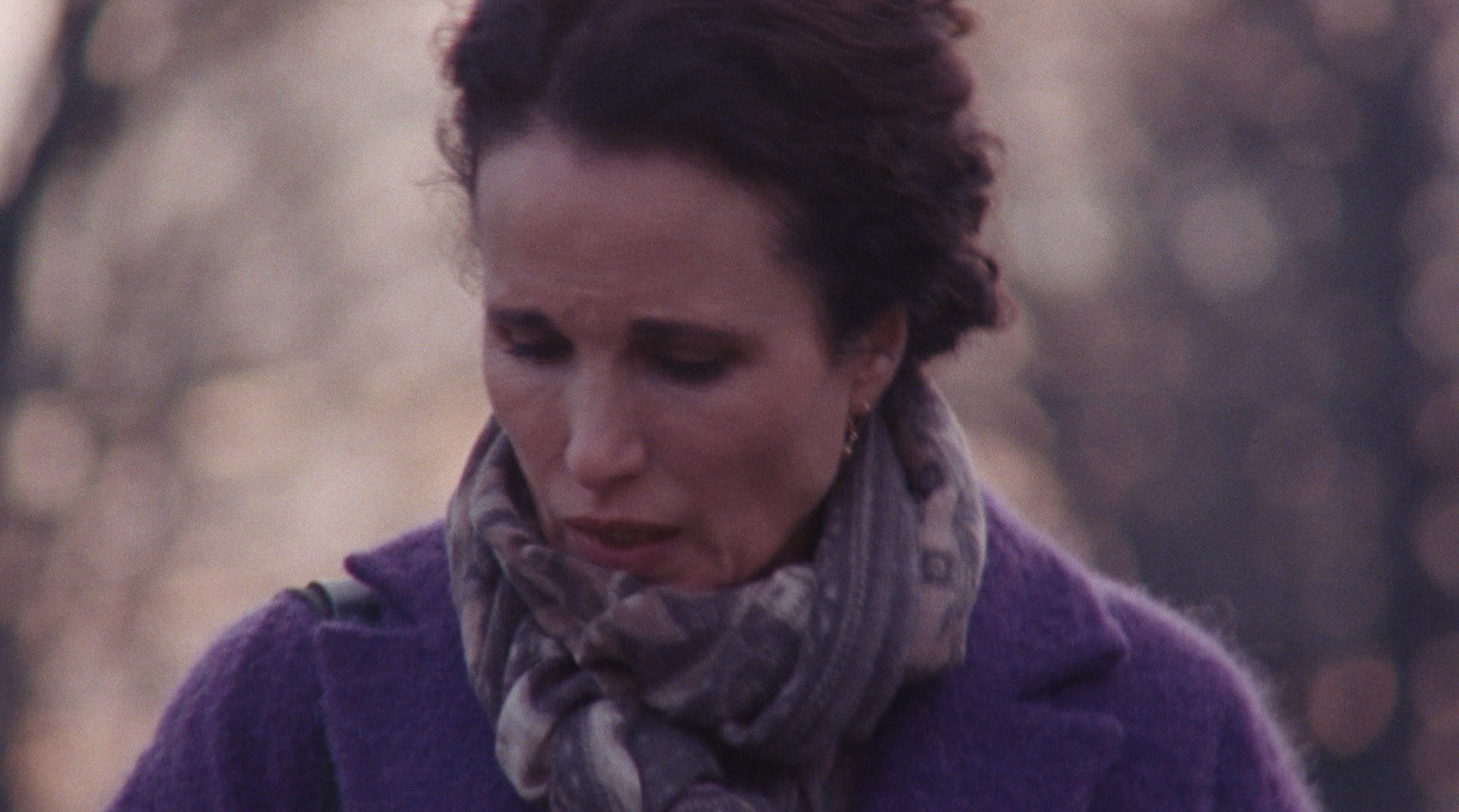
Andie MacDowell and Chris O’Dowd are superb as a mother and son coping with grief in Russell Harbaugh’s intimate, insightful indie drama.
Blending the intimate volatility of John Cassavetes with the elegant lyricism of Hou Hsiao-hsien, Russell Harbaugh crafts an alternately ugly and lovely — and altogether authentic — snapshot of the tumultuous process of grieving a lost loved one. Bolstered by superb lead turns from Chris O’Dowd and Andie MacDowell, as well as a formal structure that enhances the roiling emotions propelling its characters into a downward spiral, “Love After Love” is an assured debut feature that announces its writer-director as a formidable new American indie voice. In the wake of its Tribeca Film Festival premiere, it seems primed to attract enthusiastic theatrical — and award season — attention.
The narrative starts before the film’s calamity, with Suzanne (MacDowell) and son Nicholas (O’Dowd) pondering the nature of true happiness, and how long it might last. The answer to the latter question is not very long at all, given that Suzanne’s husband, greeting his family at an outdoor dinner with a raspy voice that suggests consuming cancer, is on death’s doorstep. His demise is swift and yet not nearly fast enough to spare his family immense pain as they care for him during his final days, then shuffle through the weeks and months that follow, their sorrow piling up strain on their current — and newly developing — relationships.
For Nicholas, that entails splitting with his co-worker girlfriend Rebecca (Juliet Rylance of “The Knick”) and getting engaged to the younger Emilie (Dree Hemingway); while for Suzanne, it means falling into the arms of first a colleague, and then a man named Michael (Matt Salinger) whose presence doesn’t sit well with Nicholas. Through these ups and downs, Suzanne and Nicholas’ own bond becomes increasingly fraught with tensions of a twisted sort, with Suzanne disapproving of Nicholas’ new partner, and Nicholas growing increasingly angry at his mom’s desire (and ability) to move on with a new beau — a dynamic that’s laced with hints of romantic jealousy and quasi-incestuous bitterness.
As Nicholas free-falls into one romantically imprudent entanglement after another, his younger brother, Chris (James Adomian), copes with his dad’s passing by drowning himself in booze and self-loathing, helping to form the lonely, miserable familial triangle at the film’s center. Harbaugh dramatizes their descent into rage and despair via a narrative assembled as a series of snapshots, making it feel like we’re intermittently dropping in on the characters. That approach mirrors Suzanne, Nicholas and Chris’ disassociation from themselves and each other, and it proves an evocative means of locating them at key moments along their path toward some sort of resolution. Beautifully edited by Matthew C. Hart and John Magary (whose 2014 feature “The Mend” was co-conceived by Harbaugh), the film has an impressionistic spirit that’s married to a keen eye for important details.
“Love After Love” finds truth in small gestures, from dad’s momentary (but weighty) glance down at his cigarette, to Chris drunkenly relieving himself on in the coatroom during a party, to the look of powder-keg fury and misery barely kept at bay by a wan smile on Nicholas’ face during a dinner with Suzanne and Michael. Comprised of jangly jazz, mournful piano and ramshackle rock tracks, David Shire’s electric score is in tune with these confused souls’ inner unrest. Meanwhile, Harbaugh and cinematographer Chris Teague’s visuals marry intense closeups with medium shots that frame solitary figures in doorways — the film’s signature composition, which piercingly speaks to their feelings of claustrophobia, isolation and anguish, and which feels indebted to the style of Taiwanese master Hou.
The film captures the disarray that loss often engenders in those left to soldier on, and ultimate credit for its success goes to the cast. In a role that develops from heartache to a stew of possessiveness and resentment to hopeful catharsis, MacDowell is transfixing, her turn all the more moving for being laced with a degree of unpleasantness. That’s even truer of O’Dowd, whose Nicholas is for the most part an unrepentant prick, and yet made empathetic by the actor’s refusal to reduce him to merely the sum of his actions; creeping around the edges of his eyes, you can sense the relatable cause of his each successive misstep. One need not dig too deeply to unearth the source of Chris’ pain, however, as Adomian lays his sad-sack soul bare in a centerpiece standup routine during which — through awkward jokes about Jesus and God — he combats his darkness with amusingly raw, confessional comedy.
[“Source-variety”]










